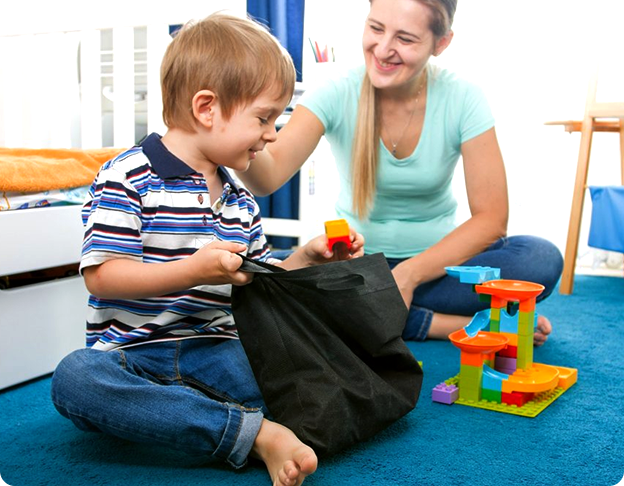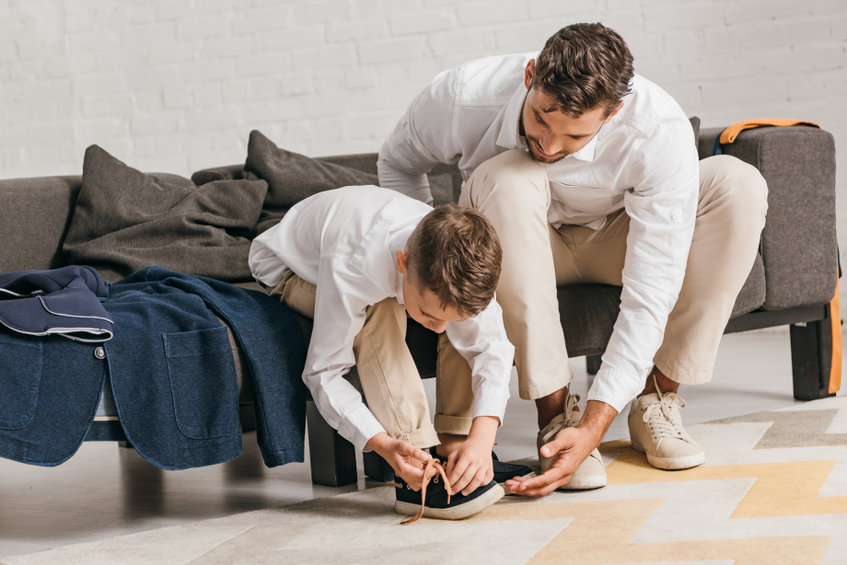The start of a new school year can make any child feel anxious, but it can be particularly stressful for children with autism. A change in the school, the teacher or the grade level can exacerbate your child’s anxiety. The key to reducing his or her fear is advance preparation through a series of small steps that can make the unknown seem more familiar. Because every child is different, the following tips may not work for all children, but the benefit from even a few of them can successfully mitigate his or her anxiety.
1Up to a month before the start of school, spend some time every day talking with your child about the new school year. Discuss what he or she can expect. This is especially important if there will be significant changes, including an alteration in routine, a new school, a different aide, a new teacher or new classmates, etc.
2 Use a calendar to provide visual information about when school starts. Place the calendar where it can be easily seen by your child. Mark the first day of school by circling or highlighting the date. Every day, cross off the date. This can give your child a better understanding of how much time is left before the start of the school year.
3 Start adjusting your child’s sleep schedule at least two weeks prior to the first day of school. Practice the morning routine so that he or she will know what should happen in the time between waking up and leaving for school. You might want to create a schedule that outlines all the activities.
4 Arrange to tour the school with your child. Be sure to visit any area in which he or she will be spending time, including the cafeteria, playground, and bathrooms. If possible, arrange for your child to meet his or her teacher before the first day of school; if the teacher is unavailable during the tour, arrange to return at a later date. Remember to take pictures during the tour so that you can include them in a social story, and do not forget to take a picture of your child’s teacher.
5 During your tour, ask your child’s teacher or case manager to demonstrate where your child should go and what he or she should do in an emergency. If your child has difficulty handling changes in routine, loud noises or unexpected interactions with classmates, ask that he or she be shown the cool-down area or safe space in the classroom.
6 Layout the rules for your child. Discuss these with him or her to ensure understanding. If a behavior plan has been working for your child, share it with the new teacher so that it can be implemented on the very first day.
7 Keep the lines of communication open with your child’s school. Prepare a letter of one or two pages that outlines your child’s dietary restrictions, strengths and weaknesses, preferred reinforcers, and issues. Share copies of this letter with all staff members who will be working with your child, including all teachers, the principal, your child’s case manager, and all therapists. Ask the teacher about creating a communication log for exchanging information.
8 If your son or daughter has certain sensitivities, ensure that at least one favorite toy or a familiar item is available on the first day and at all times thereafter. This may be something you can give to the teacher to put in the cool-down area for him/her when they need it.
9 If your child will be riding the bus, try to arrange a meeting with the driver. If the driver will be conducting practice runs, see if you can arrange for you and your child to ride along on at least one of these runs.
10 Attempt to find at least one thing that can be kept consistent, especially if the new school year will involve changing schools, classrooms or teachers.
11 If your child’s friend will be accompanying him or her to a new school or grade, arrange a few playdates before the first day of school. The knowledge that a familiar face will be there with them can make your child less anxious about the new school year.
12 Review a social story about the new school year and familiarize them with the upcoming changes periodically. Building familiarity with the images of objects, places, and people can help your child feel more comfortable. Looking at the pictures may also encourage your child to talk about any school-related worries or fears.
13 Play school with your child to help get him or her accustomed to routine activities and common rules. This will help them practice things they may be fearful of when school commences.
14 Accept the possibility that there could be days when things may not work out as well as you would like. Have a plan for those days.
At Behavior Nation, we understand how stressful the start of a new school year can be for children with autism as well as their parents. Planning ahead for our children will make the most proactive approach to ease them into the various changes in their new school year. We also understand that little steps can lead to important victories. Our entire focus is on helping children on the Autism Spectrum Disorder achieve their full potential. Visit our website to find additional resources for parents.




